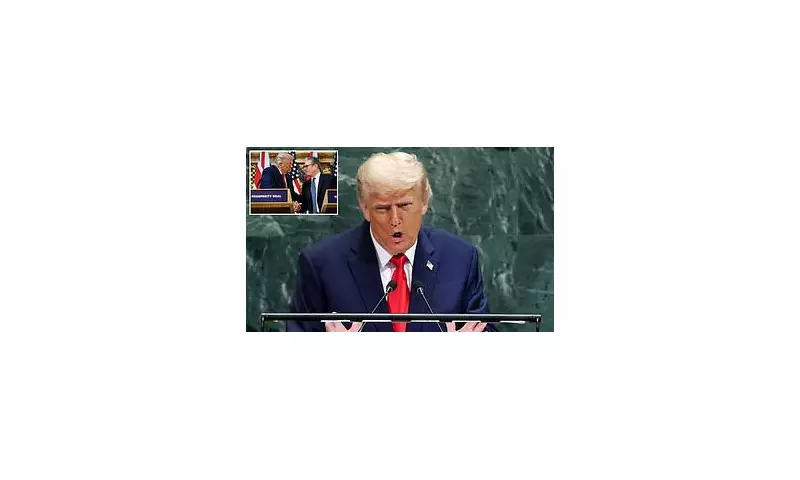
In a dramatic intervention that is set to inflame the debate over Britain's energy future, former US President Donald Trump has launched a ferocious broadside against Sir Keir Starmer's Net Zero ambitions. During a speech on UK soil, Trump branded the Labour leader's reliance on wind power and solar energy as a recipe for economic ruin and national vulnerability.
A Stark Warning from Across the Atlantic
Trump pulled no punches in his assessment, directly challenging the core of Starmer's environmental strategy. He portrayed the push for renewables, particularly the installation of wind turbines across the North Sea and the British countryside, as a misguided fantasy that would leave the nation impoverished and powerless.
"They're going to destroy this country with windmills and solar panels," Trump declared, arguing that the infrastructure is unreliable and visually polluting. He emphasised a belief that the UK should be prioritising its energy security above all else, suggesting the current path makes the nation "defenceless".
The Political Fault Lines Exposed
This unexpected critique from a globally influential figure throws a spotlight on the deep political divisions surrounding Net Zero. Trump's comments are likely to be seized upon by critics of the government's and Labour's green policies, who argue that the costs and practicalities are being ignored.
The former President's stance stands in stark contrast to the consensus among many Western leaders, including Prime Minister Rishi Sunak, who has also endorsed a transition to cleaner energy, albeit recently tempering the pace due to cost concerns. Trump's speech effectively positions Sir Keir Starmer on the frontline of a cultural and economic battle over how Britain powers its future.
Energy Security vs. Environmental Imperative
At the heart of Trump's argument is the classic tension between immediate energy security and long-term environmental sustainability. He framed the issue in starkly practical terms, questioning what happens when the wind doesn't blow and the sun doesn't shine. His comments reflect a growing debate within the UK about the affordability and reliability of renewable energy sources as the primary solution.
This intervention ensures that energy policy will remain a hot-button issue, forcing all parties to sharpen their arguments about how to achieve both a stable energy supply and meet crucial climate targets without placing an undue burden on taxpayers and industry.





